What you do after your workout matters just as much as the workout itself — and that’s where whey protein steps in.
As a fitness coach, I’ve seen firsthand how timing your whey intake can make a serious difference.
It can help you recover quicker, reduce soreness, and boost muscle growth — all without overcomplicating your routine.
In this guide, you’ll learn exactly how to use whey protein after your workout for maximum results — plus the common mistakes to avoid and pro-level tips from my own experience with clients.
Table of contents
Quick Answer
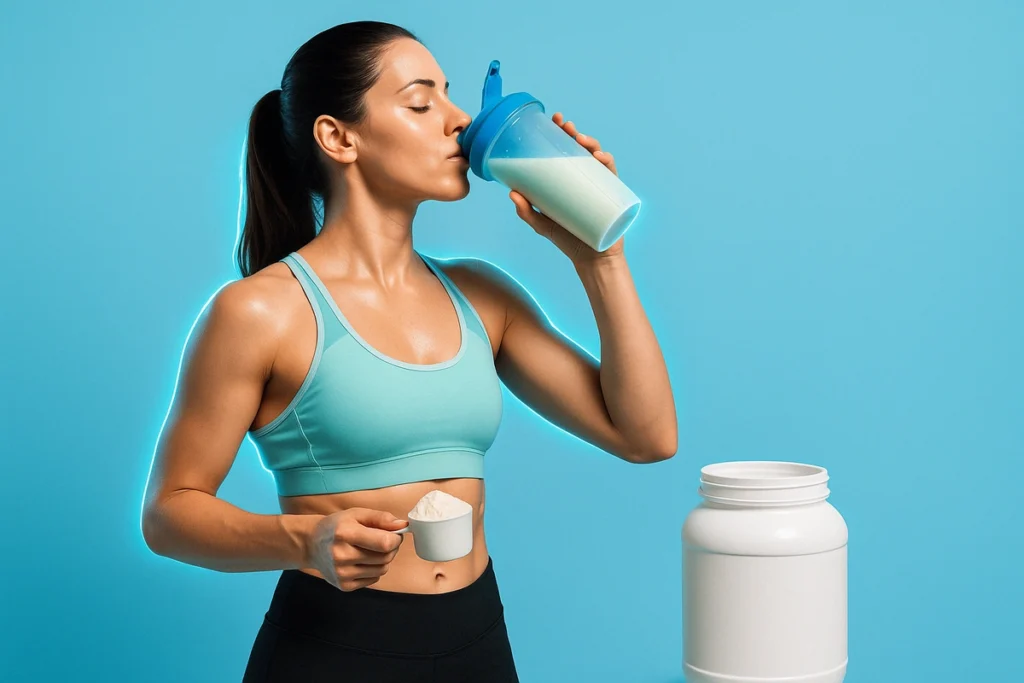
Right after your workout — ideally within 30 to 60 minutes — take 25 to 30 grams of whey protein, preferably whey isolate, mixed with cold water. This delivers fast-digesting amino acids to your muscles when they need it most.
If you’re in a bulking phase, add extras like banana, creatine, or even oats for more recovery power.
📌 Don’t delay your shake — get it in early for best results.
Why Whey Protein After a Workout Works

Here’s the deal: training breaks down your muscles — recovery builds them back stronger.
After you train, your body is in a catabolic state, and fast protein intake is essential for recovery and muscle growth.
Whey protein:
- Absorbs quickly
- Spikes muscle protein synthesis (MPS)
- Helps reduce muscle soreness (DOMS)
- Supports lean mass gain when combined with smart training
👉 If you’re still unsure which type of whey works best for your goal — recovery or size — check out my breakdown on the best whey protein options for muscle gain and recovery. It compares isolates, blends, and even hydrolyzed whey based on real client results.
From what I’ve seen as a coach, whey is one of the few supplements that actually delivers when used consistently and correctly.
How Much Whey Should You Take Post-Workout?
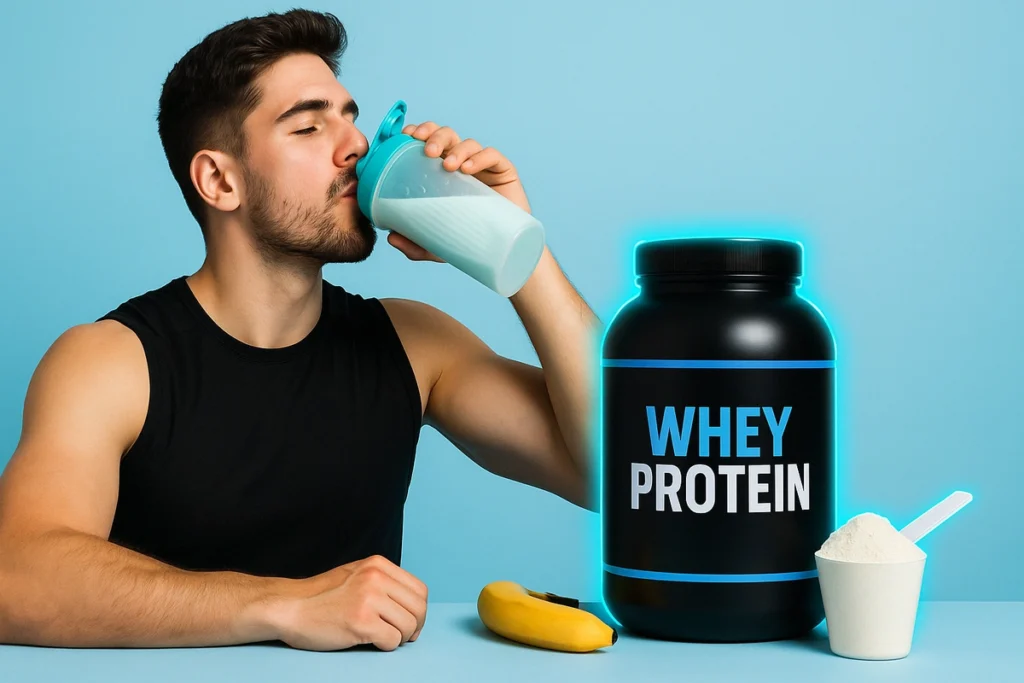
The research suggests about 0.4g of protein per kg of body weight post-exercise. But to keep it simple:
➡️ One scoop (25–30g) of whey is perfect for most people.
Personally, I go with:
- 30g whey isolate
- 5g creatine monohydrate
- Mixed with cold water
And on leg days or harder push sessions, I throw in a banana for quick carbs.
What to Mix Whey With for Best Results
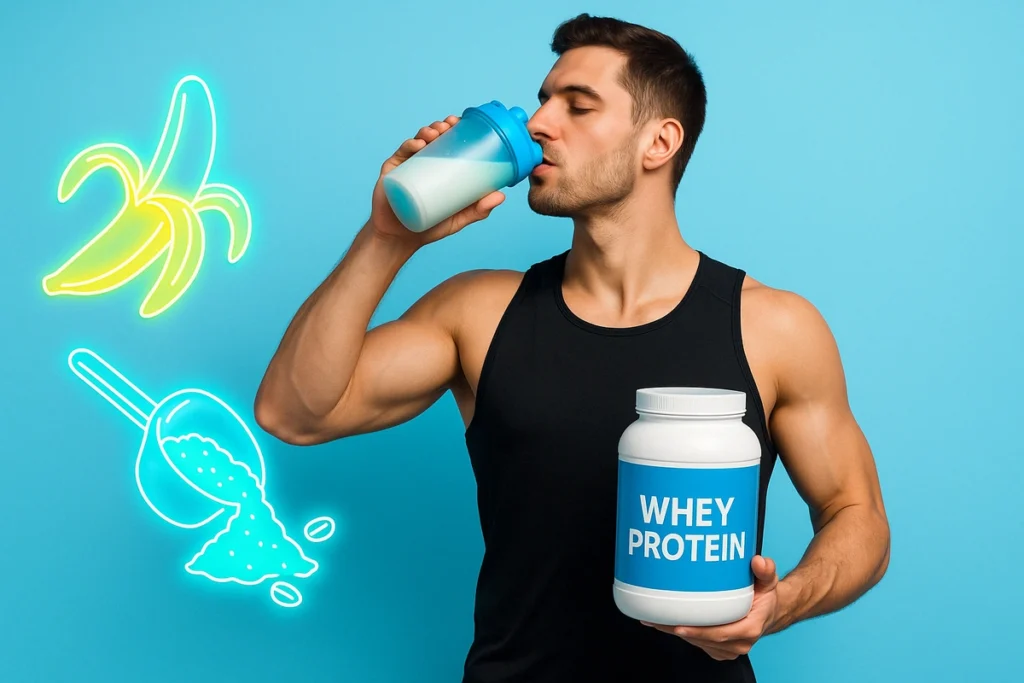
- Water = fastest digestion
- Low-fat milk = slower absorption, more calories
- Optional add-ins:
- 5g creatine (my go-to)
- 1 banana (on high-volume days)
- 20g oats or a bit of peanut butter (for lean bulking)
If you’re cutting? Stick to whey + water + creatine. No fluff.
👉 Some clients also ask about nighttime whey. In certain cases, especially for those training late, whey before bed may support recovery. Here’s my guide on whey protein at night and whether it’s worth it.
Common Mistakes to Avoid
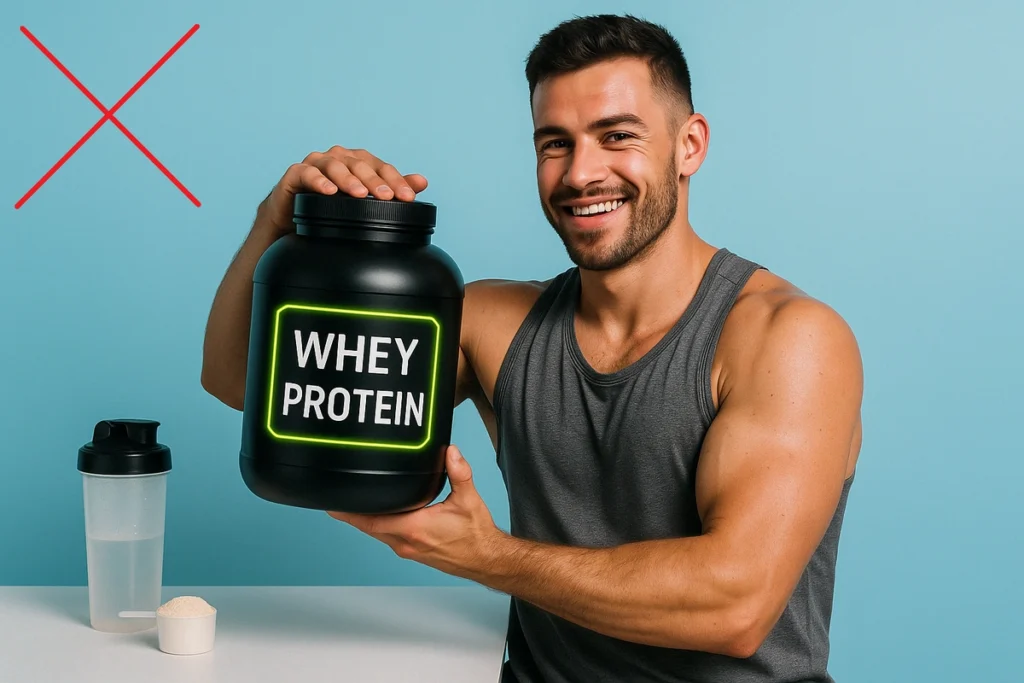
- Relying on whey as a meal replacement
- Skipping solid meals later
- Not training hard and expecting magic
- Overcomplicating shakes with junk
Whey should support a strong program — not replace discipline or effort.
👉 Curious if you can mix whey, creatine, and BCAAs? Yes — and it can be a smart combo. I’ve broken it down fully in this article on using whey, creatine, and BCAAs together.
Real-Life Coaching Stories
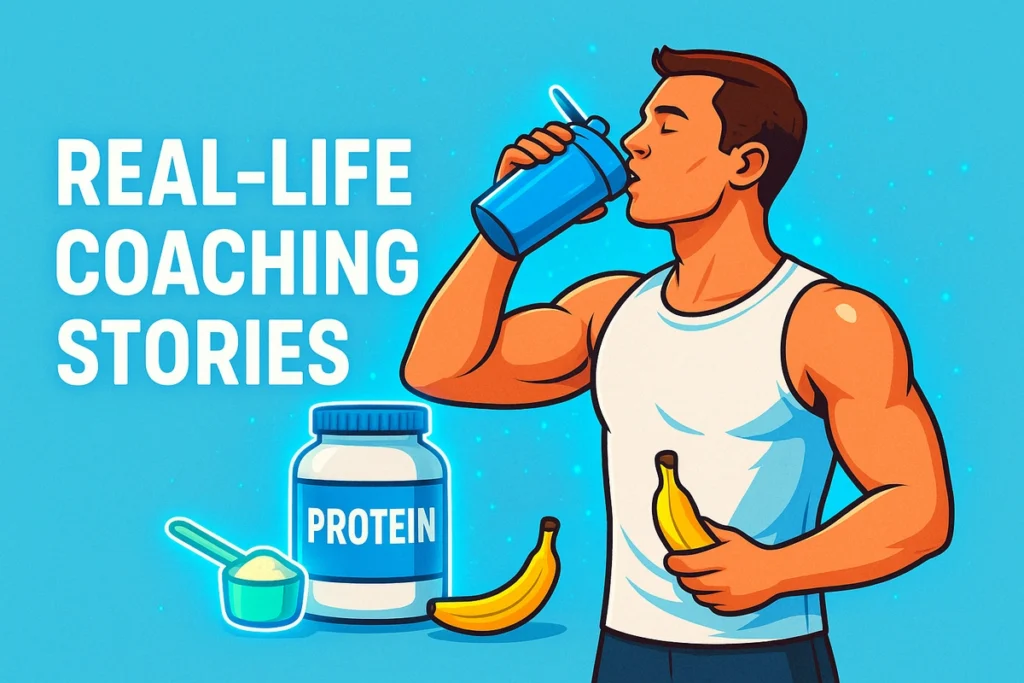
✅ David’s Transformation (UK, 27)
David was a skinny hardgainer who needed structure. I put him on a simple plan:
One scoop whey + 5g creatine + 1 banana right after workouts.
In just 4 weeks, he gained 2.6kg of lean muscle, and his soreness dropped significantly by week 3.
❌ Luca’s Mistake (Italy, 34)
Luca assumed whey alone would change his body. He skipped meals, trained inconsistently, and didn’t prioritize recovery.
After a month — no change. Once we added whole post-workout meals, results started showing.
Coach Hossein’s Take
Whey protein is not a magic fix. I tell every client:
“Whey bridges the gap — but food builds the body.”
If you can eat right away, great. But if not, whey gives you a fast, effective way to kickstart muscle repair while you prep that post-workout meal.
FAQ – Quick Answers

Can I skip whey and just eat a meal?
Yes — but only if it’s within 30–60 minutes and high in quality protein.
Is whey good for women after workouts?
Definitely. Muscle recovery applies to everyone — and whey is just protein.
What if I miss the 30-minute window?
Don’t stress. You still benefit if you take it within 1–2 hours — but sooner is better.
Coach’s Final Takeaway
Whey protein works. But only when you work, too.
It’s convenient, fast, and effective for muscle recovery and growth — when paired with training, real food, and consistency.
After coaching hundreds of clients and tracking my own journey for over a decade, I can tell you confidently:
- Take your whey
- Train hard
- Eat smart
- Stay consistent
That’s the formula that turns a good workout into real transformation.

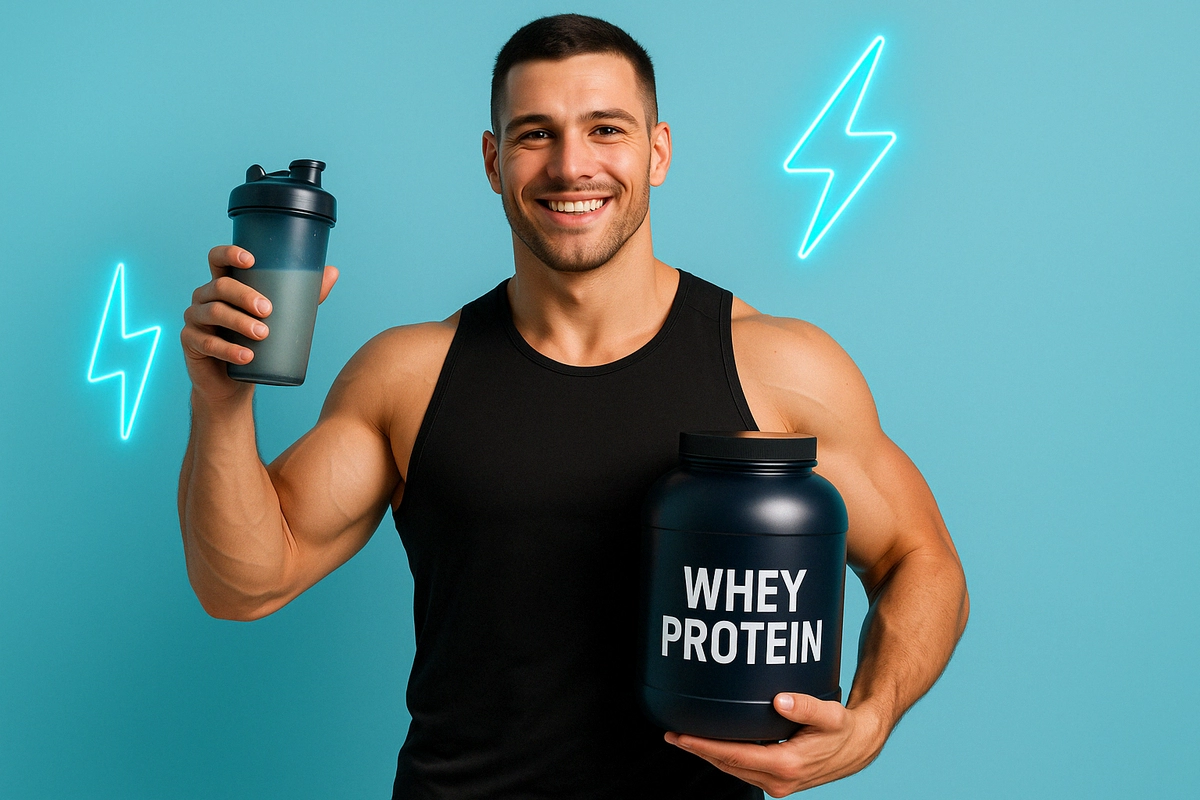

Leave a Reply